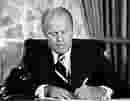The Order of Creation
In the "Colloquium Fratrum " of the most recent Logia (Epiphany 2007), I was reminded again of the ongoing debate in the LCMS regarding the "Order of Creation" as it applies to the service of women in the church. Dr. Matthew Becker, in response to an earlier article by Pastor Holger Sontag ( which dealt with the propriety of women teaching theology at the seminary in reaction to an article by Becker - see below), remarked that, .."the 'the order of creation,' in which men are 'the head' of women and women are ontologically subordinate to men, these texts no longer make any sense in contemporary Western, scientific societies. The cosmological foundation on which such an 'order of creation' argument rests has been overturned by knowledge from the natural sciences and by cultural changes in the East over the past three hundred years. To argue that God actually created the man first, and then the woman from the rib of man, and that th...









